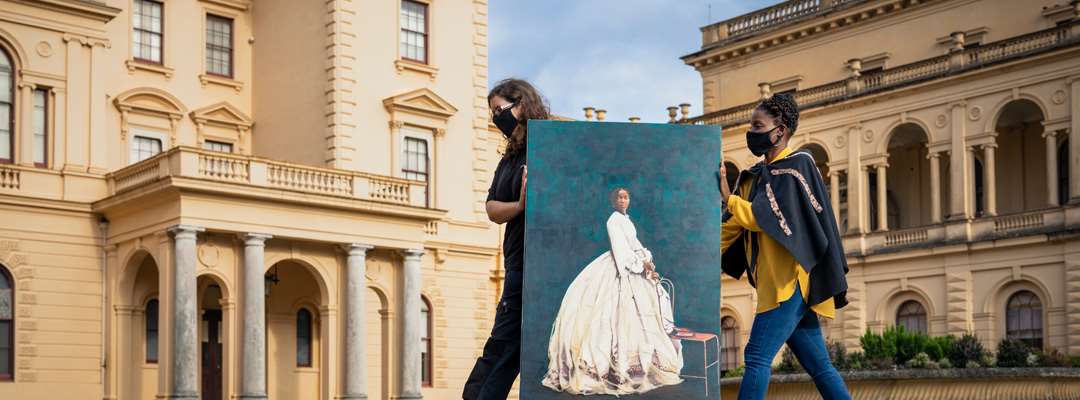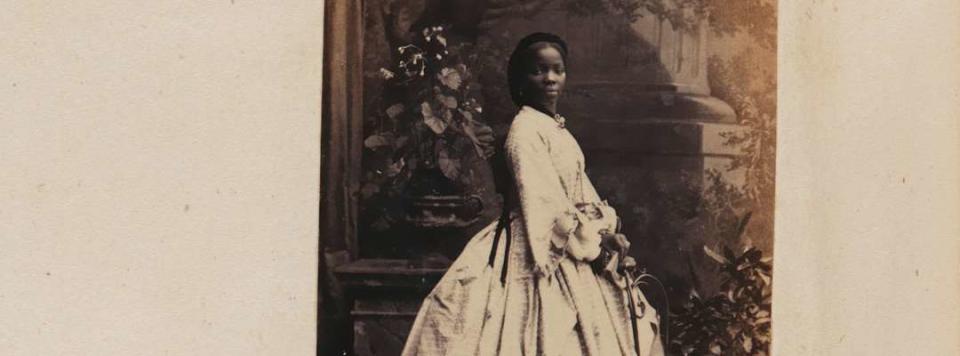New portrait of Queen Victoria's African goddaughter sheds light on forgotten Black history

A portrait of Sarah Forbes Bonetta, the daughter of an African ruler and goddaughter of Queen Victoria, was unveiled Wednesday as part of an effort to shed light on forgotten Black stories in British history.
Bonetta, originally named Aina, was orphaned and enslaved by King Gezo of Dahomey, present-day Benin, when she was 5 years old, according to a release from English Heritage, a charity that manages more than 400 historical sites in England. In 1850, she was given as a "diplomatic gift" to Capt. Frederick Forbes who brought her to England and introduced her to the queen.
Queen Victoria met with Bonetta, whom she described as "sharp and intelligent" several times over the next few years, including at Osborne, her seaside home on the Isle of Wight. She paid for her education and became her godmother.
Bonetta married James Davies, a merchant from Sierra Leone whose parents were liberated slaves and named her first daughter Victoria, who would also become goddaughter to the queen. The younger Victoria was on a trip to see the Queen at Osborne when Bonetta died in 1880 of tuberculosis.
It was at Osborne where the painting of Bonetta, created by artist Hannah Uzor, was unveiled Wednesday. The portrait is based on a photograph of Bonetta in her wedding dress, which is housed in the National Portrait Gallery in London.
Want more coverage? Sign up for This Is America, USA TODAY's newsletter on race and identity

"To see Sarah return to Osborne, her godmother’s home, is very satisfying, and I hope my portrait will mean more people discover her story," Uzor said in a statement. "What I find interesting about Sarah is that she challenges our assumptions about the status of Black women in Victorian Britain. I was also drawn to her because of the parallels with my own family and my children, who share Sarah's Nigerian heritage."
The painting will be on display throughout October, which is Black History Month in England. English Heritage announced the painting is part of a series of portraits of overlooked Black figures from history that will be displayed across several sites next spring.
The project will highlight figures including Rome’s African-born emperor, Septimius Severus, and James Chappell, a 17th century servant at Kirby Hall in Northamptonshire.
"There are a number of Black figures from the past who have played significant roles at some of the historic sites in our care, but their stories are not very well known," Anna Eavis, English Heritage’s curatorial director, said in a statement. "Starting with Sarah, our portraits project is one way we’re bringing these stories to life and sharing them with our visitors."
The organization plans to research and address the links between the slave trade and the sites it manages, which include Stonehenge, palaces, castles, abbeys and Roman forts.
Follow N'dea Yancey-Bragg on Twitter: @NdeaYanceyBragg
This article originally appeared on USA TODAY: Black history: Queen Victoria's African goddaughter portrait displayed


